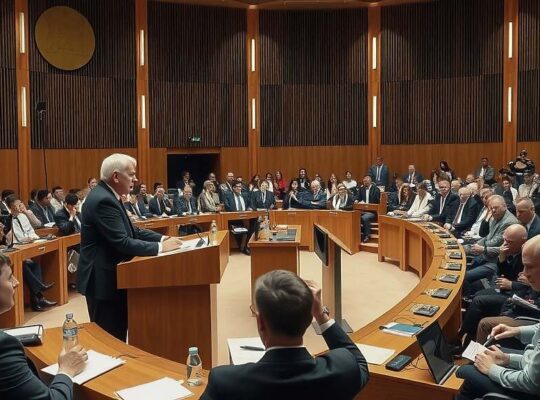Amidst mounting global concerns about climate change and ahead of the crucial climate conference in Belém, Brazil, German Environment Minister Carsten Schneider is advocating for a revised approach to rainforest protection, one that places financial incentives at its core. The proposed scheme, originating from Brazil, seeks to reward tropical nations for maintaining existing forest cover and disincentivize deforestation through a system of penalties.
Schneider’s proposal, outlined to the Funke-Mediengruppe, envisions a system wherein tropical nations would receive modest annual payments for each hectare of intact rainforest they preserve. Conversely, those who choose to clear-cut would face significant financial deductions, effectively creating a market-based mechanism for conservation. The German government is actively promoting this initiative, hoping for a breakthrough before the November 10th conference.
The urgency stems from the alarming trajectory of global warming. Schneider voiced deep concern regarding projections indicating a potential temperature rise of three degrees Celsius, far exceeding the internationally agreed target of 1.5 degrees. He emphasized the critical role of rainforests as a global “air conditioner” highlighting that their preservation benefits the entire planet.
However, the proposal is not without potential pitfalls. Critics are already raising questions about the practicalities of implementation, particularly regarding the verification of forest integrity and the risk of corruption within recipient nations. Concerns also linger regarding the potential for the scheme to be exploited as a form of carbon offsetting, potentially allowing wealthier nations to continue unsustainable practices while paying poorer nations to shoulder the burden of conservation.
Furthermore, the long-term sustainability of such a program hinges on securing consistent and substantial funding from international partners. The German government’s commitment, while significant, may not be sufficient to guarantee the initiative’s success, raising questions about broader global willingness to prioritize rainforest protection through tangible financial investment. The Belém conference represents a vital opportunity to address these concerns and solidify a framework capable of meaningfully addressing the escalating climate crisis.












